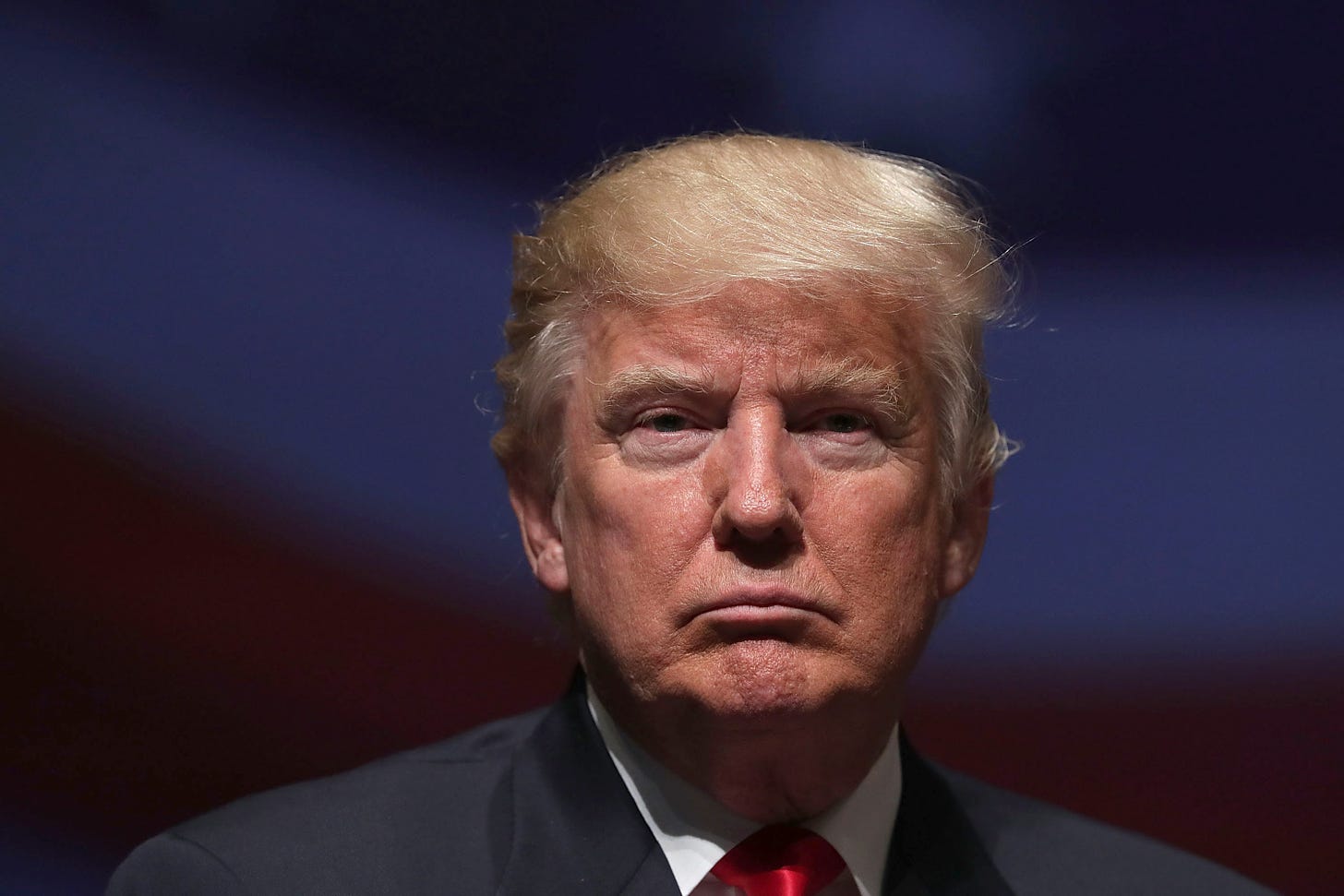Be Careful What You Wish For
If Trump uses emergency powers to build The Wall, it will unlock a Pandora's Box of executive branch mischief.
The attribution to Mark Twain is probably apocryphal, but conservatives nevertheless ought to remember the adage that “history doesn't repeat itself, but it often rhymes.” For the moment, President Trump has backed off from his threat to declare a national emergency in order to build his wall, even though the Trumpian commentariat continues to insist that doing so would be a win/win for the president. Declaring an emergency would allow him to end the shutdown, while also reassuring his base that “he fights.” (It would be less likely to actually get him The Wall, since the order would almost certainly be tied up in litigation for years. And because a wall that’s not achieved through legislation can be unilaterally undone by the next Democratic president.) Even so, while declaring an emergency might be temporarily good for Trump, it would be a worst-case scenario for conservatives (or people who care about constitutional norms) because it would be trading a short term political thrill for a long-term political catastrophe. At the very least, it would change both the rhythm and the potential rhymes of history.
After Senator Lindsay Graham endorsed the use of presidential fiat, former Obama speech writer Jon Favreau tweeted:
Pumped for the next Democratic president to use “emergency powers” for a Green New Deal (climate emergency), Medicare for All (public health emergency), and a new Voting Rights Act (democracy emergency)! https://t.co/cuC19W6nkH
— Jon Favreau (@jonfavs) January 10, 2019
This threat need not be taken literally in order for Republicans to take it seriously. An emergency declaration for The Wall would dramatically accelerate our tribal win-at-all costs, norms-be-damned politics and it takes only a minimum of imagination to guess what a President Alexandria Ocasio-Cortez might do with such powers. The Brennan Center for Justice may lean left, but it is already sounding the alarm over the 136 statutory powers “that may become available to the president upon declaration of a national emergency.” Each one of these poses potentially grave constitutional dangers. In his dissent in Korematsu v. United States, the case that upheld the internment of Japanese Americans, Justice Robert Jackson had warned that every one of the president’s emergency powers “lies about like a loaded weapon, ready for the hand of any authority that can bring forward a plausible claim of an urgent need.” Jackson got an opportunity to revisit the question after President Harry Truman seized the nation’s steel mills under the guise of his emergency powers. In the Youngstown decision, which struck down Truman’s action, Jackson noted that the Founders had not included provisions for emergency declarations in the Constitution. “They knew what emergencies were,” Jackson wrote,” knew the pressures they engender for authoritative action, knew, too, how they afford a ready pretext for usurpation.” And Jackson warned, “We may also suspect that they suspected that emergency powers would tend to kindle emergencies.” [Emphasis added] As the Brennan Center notes, Congress has given the president what the Founders had not: “emergency powers that have the potential for creating emergencies rather than ending them.” Over the past few decades, presidents of both parties have expanded those powers “with their own secret directives.” In 1976, Congress sought to take back some of the powers it had ceded to the executive by passing the National Emergencies Act:
Under this law, the president still has complete discretion to issue an emergency declaration—but he must specify in the declaration which powers he intends to use, issue public updates if he decides to invoke additional powers, and report to Congress on the government’s emergency-related expenditures every six months. The state of emergency expires after a year unless the president renews it, and the Senate and the House must meet every six months while the emergency is in effect “to consider a vote” on termination.
But as Brennan notes, ‘by any objective measure, the law has failed”:
Thirty states of emergency are in effect today—several times more than when the act was passed. Most have been renewed for years on end. And during the 40 years the law has been in place, Congress has not met even once, let alone every six months, to vote on whether to end them.
The Center then asks a haunting question:
What has prevented the wholesale abuse of these authorities until now is a baseline commitment to liberal democracy on the part of past presidents. Under a president who doesn't share that commitment, what might we see?
Fortunately, some conservative critics have also grasped the threat. The editors of National Review warn that “legalities aside, [an emergency declaration] would be a very bad practice”:
It’s an offense against the spirit of our system for a president to fail to get he wants from Congress—in a dispute involving a core congressional power, spending—and then turn around and exploit a tenuous reading of the law to try to get it anyway.
NR’s editors note that any declaration would be immediately be challenged in court. But even if it “prevails in a Supreme Court loath to second-guess even dubious military-related determinations by the commander-in-chief,” the administration will have “created another precedent for unilateral government sure to be exploited the next time a Democrat occupies the White House.” David French underlines the point, emphasizing the damage that such a Trumpian abuse would have on the constitutional order:
Each abuse builds on the next; hypocrisy builds on hypocrisy. The only clear winner is the imperial presidency. The loser is our constitutional republic. And each Trump fan cheering his raw power grab will be a furious partisan when the next Democratic president builds on Trump’s abuse.
And that seems just a matter of time, because history does have a way of rhyming.





